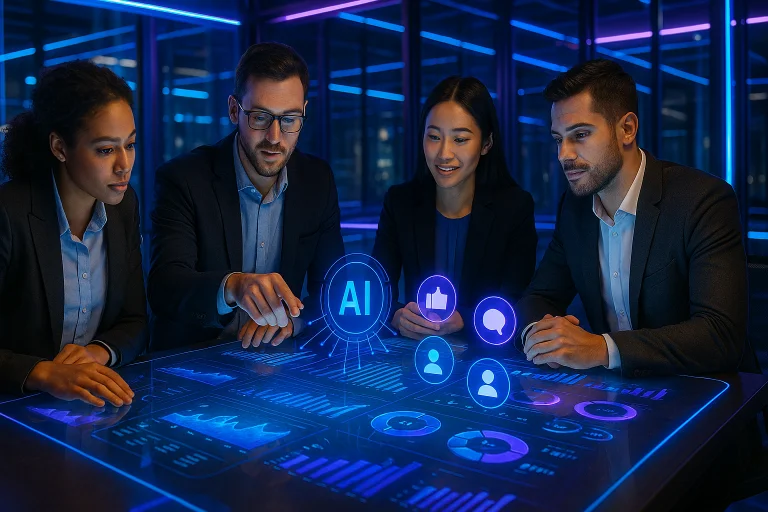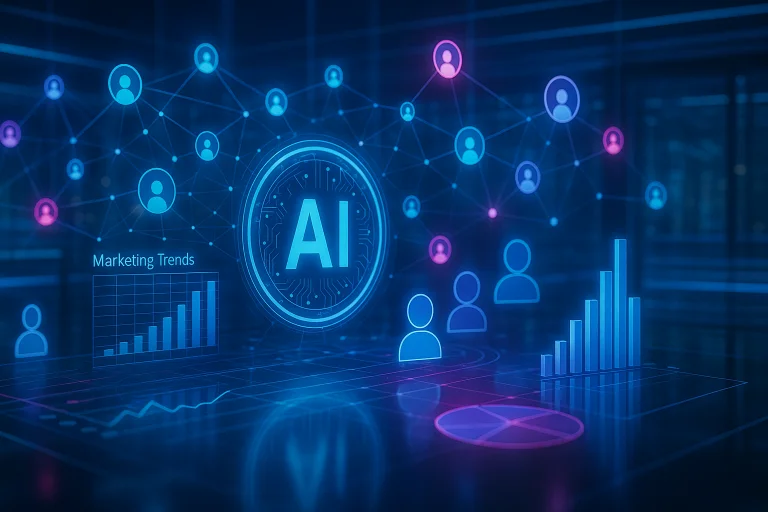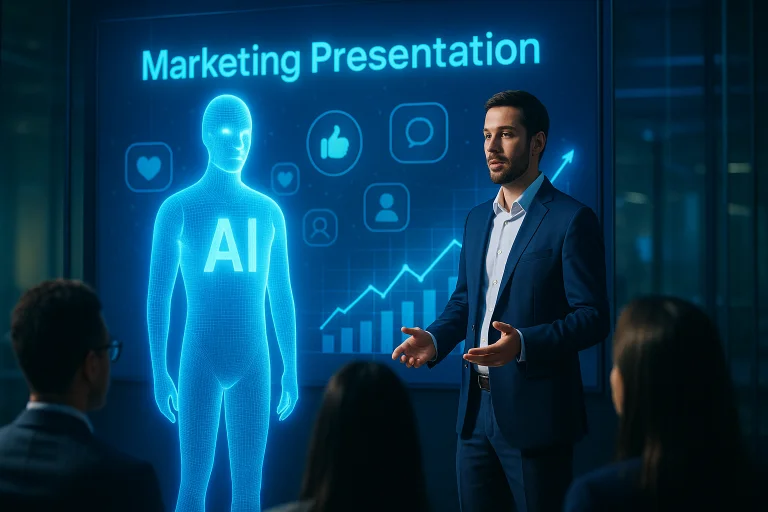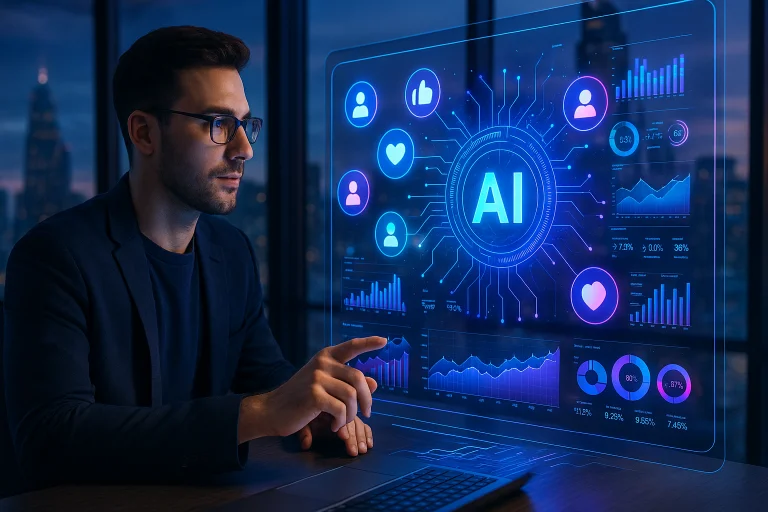Artificial Intelligence (AI) is no longer just a futuristic concept—it’s now a core driver of how businesses and individuals engage with audiences online. From personalized recommendations on Instagram to automated customer responses on Facebook, AI is revolutionizing social media marketing at every level. Brands that embrace AI gain an edge in understanding consumer behavior, creating impactful content, and optimizing campaigns with precision.

The Rise of AI in Social Media
AI’s influence on social media began with simple algorithms that suggested who to follow or what to watch next. Today, it has evolved into complex systems that can analyze billions of data points in seconds. Whether it’s TikTok’s “For You” page or LinkedIn’s job recommendations, AI shapes how content is delivered and consumed. For marketers, this means unprecedented access to insights and the ability to tailor strategies with pinpoint accuracy.
Personalized Content Recommendations
One of the most noticeable impacts of AI is its ability to personalize feeds. Social platforms use machine learning to track user behavior—likes, shares, watch time, and clicks—and then recommend content accordingly. For marketers, this is a goldmine. By understanding what their audience prefers, brands can design content that resonates deeply, leading to higher engagement and stronger brand loyalty.
AI-Powered Chatbots and Customer Engagement
Customer service has shifted dramatically with the rise of AI chatbots. Platforms like Messenger, WhatsApp, and Instagram now enable businesses to automate responses, handle FAQs, and even guide customers through purchases—all without human intervention. These AI-powered assistants not only provide instant responses but also learn from interactions, becoming smarter over time. This creates a seamless experience for customers while reducing workload for businesses.
Smarter Advertising Campaigns
AI takes guesswork out of advertising. Platforms like Facebook Ads and Google Ads use AI-driven targeting to ensure ads reach the right audience at the right time. By analyzing demographics, interests, and browsing behavior, AI can predict which users are most likely to engage with an ad. This not only increases ROI but also minimizes wasted ad spend.
Content Creation with AI Tools
Another major transformation is in content creation itself. Tools like ChatGPT, Jasper, and Canva’s AI features help marketers generate captions, blog posts, or even design templates in seconds. Video-editing AI can create professional-looking reels or shorts tailored for Instagram, TikTok, or YouTube. While human creativity remains irreplaceable, AI provides the foundation to scale content production faster and more efficiently.

Advanced Analytics and Predictive Insights
AI doesn’t just analyze what’s happening now—it can forecast what’s likely to happen next. Predictive analytics allows marketers to anticipate trends, spot rising topics, and adjust strategies before competitors. For instance, AI can detect early signals of viral content, helping brands jump on trends at the right moment. These insights transform reactive marketing into proactive growth.
Ethical Concerns and Challenges
While AI brings efficiency, it also raises ethical questions. Deepfakes, fake followers, and algorithm manipulation are growing threats in the social media landscape. Over-reliance on AI could also risk homogenizing content, where creativity is overshadowed by algorithm-driven repetition. Marketers must balance the power of AI with responsibility, ensuring authenticity and transparency in their campaigns.
The Future of Social Media Marketing with AI
Looking ahead, AI will only become more embedded in social platforms. We can expect hyper-personalized feeds, real-time language translation, AI-driven influencers, and deeper integrations with augmented and virtual reality. Brands that adapt early will be best positioned to capture attention in this AI-driven social era.

Conclusion
AI has already redefined how businesses interact with audiences on social media. From smarter ads to predictive insights and personalized content, the possibilities are expanding rapidly. For marketers, AI is not just a tool—it’s the new foundation of digital engagement. Those who embrace it will thrive in a landscape where attention is the most valuable currency.
FAQs
How is AI used in social media marketing?
AI is used for personalized recommendations, ad targeting, customer engagement with chatbots, and predictive analytics to improve campaign performance.
Can AI replace human creativity in marketing?
No. AI can assist in generating ideas and content, but human creativity, storytelling, and brand voice remain essential.
What are the risks of using AI in social media?
The main risks include over-automation, deepfakes, fake accounts, and loss of authenticity if not managed carefully.
Which AI tools are popular for social media marketers?
Popular tools include ChatGPT for content writing, Canva for AI-driven design, Jasper for copywriting, and Hootsuite Insights for AI-powered analytics.
You May Also Like:
- Cracking the SEO Code: Proven Strategies to Drive Organic Traffic
- Unlocking Organic Traffic: The Ultimate Guide to SEO Success
- Paid Traffic Vs. Organic Traffic: Things You Need to Know
- From Zero to Hero: How SEO Can Transform Your Business
- Mastering Social Media: The Best Tools for Content Creation and Analytics
Helpful Links:
- AI Is Taking Over Our Social Media Feeds, but Maybe Not How You Expect
- Why Reddit, An IBD 50 Stock, Is A Winner In Social Media’s AI Era
- What the Tech: Recognizing ‘AI slop’ on social media
- FTC investigating AI chatbots and their impact on teens
- AI nostalgia is the new comfort food for an anxious internet

